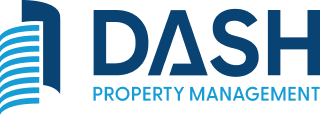“RESILIENCE AND PATIENCE ARE KEY”
In April 2023, there were promising reports about the resurgence of the residential re-sale housing market. As we entered mid-May 2023, it appears the optimism may have been mildly overstated. Nonetheless, there are positive signs worth considering. More properties are expected to enter the market, and there is pent-up demand. While we recommend exercising caution in light of macroeconomic pressures, there are reasons to be hopeful.
Inflation experienced only a slight increase in April, primarily influenced by rent and mortgage interest rates. To further alleviate inflation, it is likely that the Bank of Canada will implement a 0.25 basis-point rate increase. Some market economists argue that such a measure is necessary in the ongoing battle against persistent inflation.
We anticipate that a further 0.25 basis-point hike will have only limited impacts on the housing market. We also do not anticipate that a hike alone will not resolve the issue of inflation immediately. During the pandemic, the Government of Canada implemented monetary policies to stimulate the economy. The injected money has contributed to a persistently “sticky” inflation.
So, our previous predictions from last month’s newsletter remain consistent: interest rates are likely to remain at current levels until 2024. This is something to bear in mind when making investment decisions.
Canadian financial institutions have responded to the situation by substantially increasing their loan-loss provisions. For example, RBC raised its credit loss provisions to $600 million, up from $342 million last year. This prudent approach by the during times of financial stress is not unprecedented. We believe it is wise for our clients to exercise a similar level of prudence, ensuring they have sufficient cash reserves for potential buying opportunities while being mindful of the risks present in today’s market, particularly regarding financing.
Although headwinds should be expected and evaluated, we maintain that the GTA’s real estate market will not suffer long-term. Each client’s portfolio and risk appetite are unique, and it’s important to assess these factors accordingly.
As always, we are here to assist you in understanding the market and identifying real estate investment opportunities that align with your goals.
Our team completed a number of purchase and sale transactions in April 2023, so we have an active market perspective. In our view, the market in the GTA is resilient, as are our clients, and we believe opportunities will abound in the near future.
|
